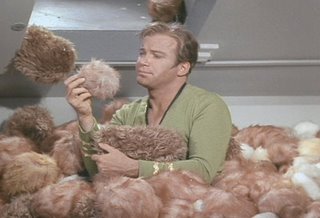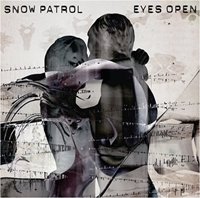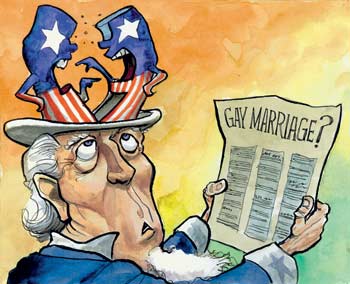Luckily for me, the curators I work with can totally empathize with my love of Star Trek. In fact, many of them are Trekkies (and Star Wars fans) themselves. And so, it makes perfect sense that we had a short lecture yesterday on Tribbles.
But what are Tribbles, you say? Tribbles, young grasshopper, are extraterrestrial creatures that resemble large hairballs. Despite their ugliness, they breed like rabbits---like extremely virile rabbits.
In an episode of the original Star Trek, the Enterprise becomes infested with Tribbles. The little critters breed and multiply, soon overtaking every nook and cranny of the ship. Although I'm not a big fan of the original Star Trek (Next Generation 4ever!), but I have seen this episode and find it quite amusing. I guess other people find it amusing too because the museum has five Tribbles in its collection.

Yesterday at noon, one of the curators was scheduled to give a brief lecture on Tribbles and how they represent the influence of science fiction in American culture. To spice up the lecture, the curator wanted to show some Tribbles to the audience. (Tribbles aren't real, of course. I think they're made out of plastic and hair. Very cute.)
Unfortunately for this curator, the museum has been in disarray for the past few days on account of the rain. The Tribbles are kept in museum collections, which is located 45 minutes from the Mall, and the curator wasn't sure if anyone from the collections department would be able to deliver the Tribbles in time.
Brief chaos ensued.
"WHAT HAPPENED TO THE TRIBBLES?" another curator asked.
"I can't reach anyone in collections because the phones are down," said the curator who was giving the lecture on Tribbles.
"I have a car. I can take you to get them. WE NEED THESE TRIBBLES."
"But it's already 10:30 and I don't know if we would make it back in time."
"No problem, I have a Delorian. You know, like on Back to the Future."
But behold the chaos passed when a fellow from collections walked into our department holding a blue box.
"THE TRIBBLES!" we all squealed.
"Oh, can I see them?" I cooed. (Yes, I was excited to see them too.)
"Can I hold one?" one of the interns asked. She seemed as excited as a Vulcan during mating season.
"Sure. But you have to wear gloves. THE TRIBBLES SHALL NOT BE TOUCHED."
"Yippee! I can't wait to call my mom!!!"
So I think this Tribbles affair proves my point that I am indeed a nerd and that the National Air and Space Museum is indeed a nerdy institution. To console myself, I find comfort in knowing that there are people in our world who are even nerdier than I am---interns.











